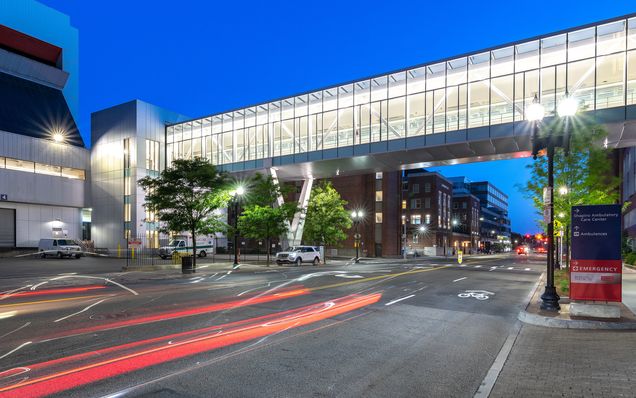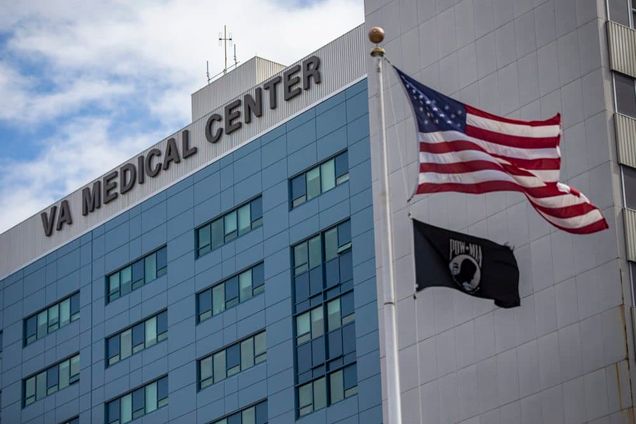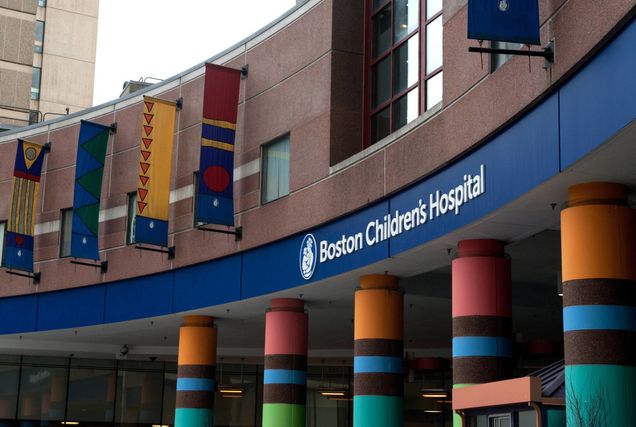Major Clinical Facilities
Boston Medical Center

![]()
Boston Medical Center (BMC) is a major academic medical center with a strong commitment to caring for underserved and diverse patient populations. As a Level I Trauma Center and home to the busiest Emergency Department in New England, BMC provides a high-volume clinical environment with an exceptionally broad range of pathology. Our residents benefit from the tremendous diversity of clinical cases, gaining invaluable experience across the full spectrum of disease presentations.
The program enjoys outstanding institutional and departmental support, and our dedicated, subspecialty-trained faculty are deeply committed to resident education. Together, they foster a rich learning environment that emphasizes clinical excellence, academic growth, and compassionate care.
BMC is a full-service hospital providing comprehensive inpatient, outpatient, and emergency care. The hospital includes 547 beds (506 adult and 41 pediatric) and, in the most recent year, recorded over 124,000 emergency visits, 28,000 inpatient discharges, and 877,000 outpatient visits.
BMC is equipped with state-of-the-art imaging technology, ensuring our residents are trained using the latest advances in radiology. Our Center for Bioimaging houses cutting-edge research equipment, including 3 Tesla Philips and 9.4 Tesla Bruker MRI scanners. Clinically, we operate a 3 Tesla GE MRI scanner with deep-learning reconstruction, a 3 Tesla Philips MRI scanner, a 1.5 Tesla Philips MRI scanner, and a 1.5 Tesla Siemens MRI scanner.
Our CT suite includes four dual-energy scanners ranging from 64 to 256 detector rows, featuring both fast kV switching and spectral detector dual-energy technologies, along with deep-learning image reconstruction. Additional imaging resources include Philips angiography suites, Philips IU-22 ultrasound systems, and nuclear radiology facilities with an integrated PET-CT scanner.
We offer a dedicated Musculoskeletal Imaging Service located in the Shapiro Building, providing a complete range of diagnostic and interventional procedures, including conventional radiography, musculoskeletal ultrasound, joint arthrography, bone biopsies, and MRI. This service provides residents with comprehensive exposure to advanced musculoskeletal imaging techniques and procedures.
VA Boston Healthcare System (VABHS)

The VA Boston Healthcare System (VABHS) provides complementary clinical training for our residents at its two campuses, Jamaica Plain (outpatient) and West Roxbury (inpatient). As a major teaching hospital, VABHS offers a high-volume, diverse patient population, with a broad range of pathologies typical of veteran care. The program emphasizes hands-on training, allowing residents to develop expertise in both diagnostic and interventional radiology under close faculty supervision.
Subspecialty-trained radiology staff provide extensive teaching, and the program benefits from excellent site support through its integration with Boston Medical Center. VABHS became an integrated component of the Boston University Residency Program in July 1998, enhancing resident exposure to unique clinical experiences.
The system comprises 350 beds, with more than 6,400 inpatient discharges and 386,000 outpatient visits in the past year. The Department of Radiology is full-service, performing over 76,000 examinations annually, with approximately 60% outpatient and 40% inpatient cases.
VABHS training complements resident education at Boston Medical Center, particularly in cardiovascular, oncologic, and musculoskeletal imaging, offering a comprehensive and diverse learning experience.
Boston Children’s Hospital

Boston Children’s Hospital, the premier pediatric hospital in the United States, offers a robust and unparalleled pediatric radiology experience. Residents complete a three-month rotation focused primarily on pediatric general diagnostic radiology and pediatric interventional radiology, providing a strong foundation in both the concepts and imaging findings specific to infants and children.
During the rotation, residents gain exposure to a wide variety of imaging modalities as applied to pediatric patients, including nuclear medicine, ultrasound, CT, MRI, interventional radiology, and conventional fluoroscopy. In addition to hands-on clinical training, residents attend didactic lectures at Boston Children’s Hospital Monday through Friday, tailored to their rotation schedule.
The pediatric radiology department comprises 37 attendings, and residents are encouraged to interact with the majority of faculty, fostering mentorship and broad clinical learning across diverse subspecialties in pediatric imaging.
